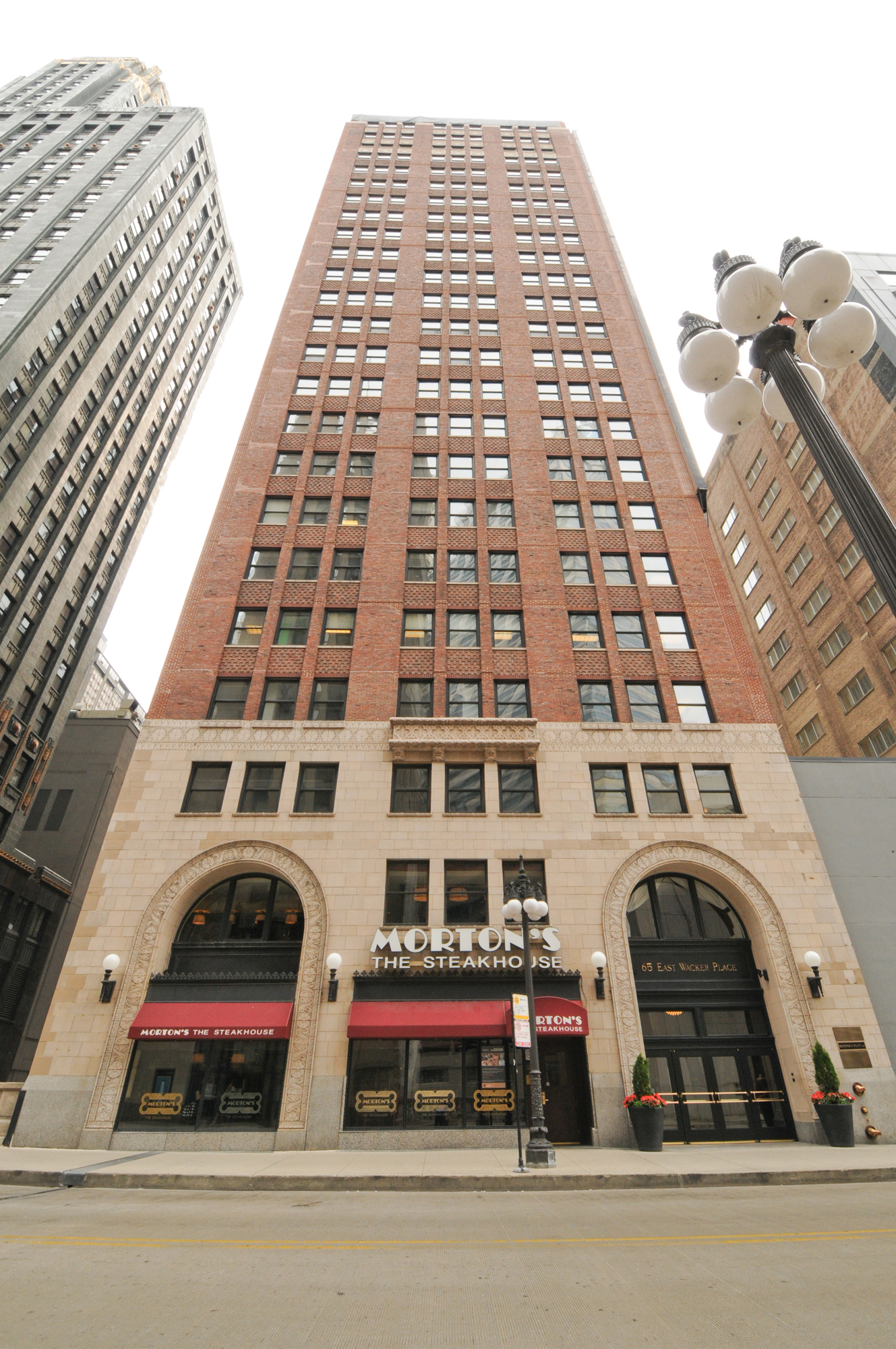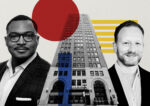The next steps for an office-to-residential conversion just off Wacker Drive look murky after developer Intersection Realty Group gave up the building to its lender through a deed-in-lieu foreclosure late last month.
The giveback, signed March 29 by Intersection co-founder Chase Chavin, put the 24-story property at 65 East Wacker Place back into the hands of lender Acres Capital. This is the second time a borrower has handed back the keys to Acres.

In 2021, the lender took over the property from the previous borrower, a Dublin-based venture of Wilton U.S. Commercial that had taken out a $24.4 million loan against the tower from Acres.
After Wilton defaulted on that debt and handed the keys to Acres, the lender hired JLL to market the 223,000-square-foot property and Intersection bought it for $19.3 million in 2022, using $14 million in debt from Acres.
Wilton U.S. Commercial’s loss of 65 E. Wacker was an early example of the way the COVID-19 pandemic ravaged commercial real estate in the Loop. Intersection’s plan to convert the building was an early sign of hope for such properties.
But architecture firm Pappageorge Haymes as well as commercial real estate services provider Bradford Allen placed more than $300,000 in liens against the property in an effort to collect payments from Intersection in the months leading up to the deed-in-lieu. Pappageorge alleged it was owed more than $292,000, while Bradford Allen was after $15,000 it said it was owed by the landlord for brokerage work.
The liens appear to have been addressed and cleared by the lender’s takeover.
Representatives of Intersection Realty did not respond to requests for comment and neither did Acres. Bradford and Pappageorge didn’t immediately return requests for comment.
At the time, Intersection was planning to convert the office building to a mix of office and residential uses, by adding 144 apartments. The firm’s goal was to complete the conversion of the 96-year-old building in 18 months.
While it’s not clear why the developer ultimately went the route of foreclosure, the conversion plan presented challenges that many developers have faced while pursuing post-pandemic office-to-residential conversions.
Although the building was about half-vacant when Intersection Realty bought it, the spaces that were occupied were divided among 23 tenants with floor plans of around 10,000 square feet.
Instead of working with a few large tenants, Intersection had nearly two dozen to potentially relocate to create a contiguous block of the building that could be redeveloped.
When the firm bought the building, Intersection’s Chavin said more than half of it would be converted to apartments.
Meanwhile, interest rates continued to rise as Intersection worked on its conversion plan.
In the months leading up to the deed-in-lieu foreclosure, a contractor and commercial real estate services firm Bradford Allen placed liens on the property in an effort to collect payments from Intersection Realty.
It’s not the only developer to get consumed by debt trouble on a Chicago Loop office-to-residential play. Barings last year hit South Florida developer DLC Residential with a $74 million foreclosure lawsuit tied to 29 South LaSalle Street, a 13-story building that DLC transformed from office space into 216 apartments several years ago. Its vacancy rose as the pandemic emptied out downtown Chicago.
Such challenges along with office market woes in the heart of the Loop spurred former Mayor Lori Lightfoot to propose a program to subsidize office-to-residential conversions under a program known as LaSalle Street Reimagined. The effort was put on hold when Lightfoot was voted out of office, but current Mayor Brandon Johnson recently announced plans to put the program back in motion.
Read more



